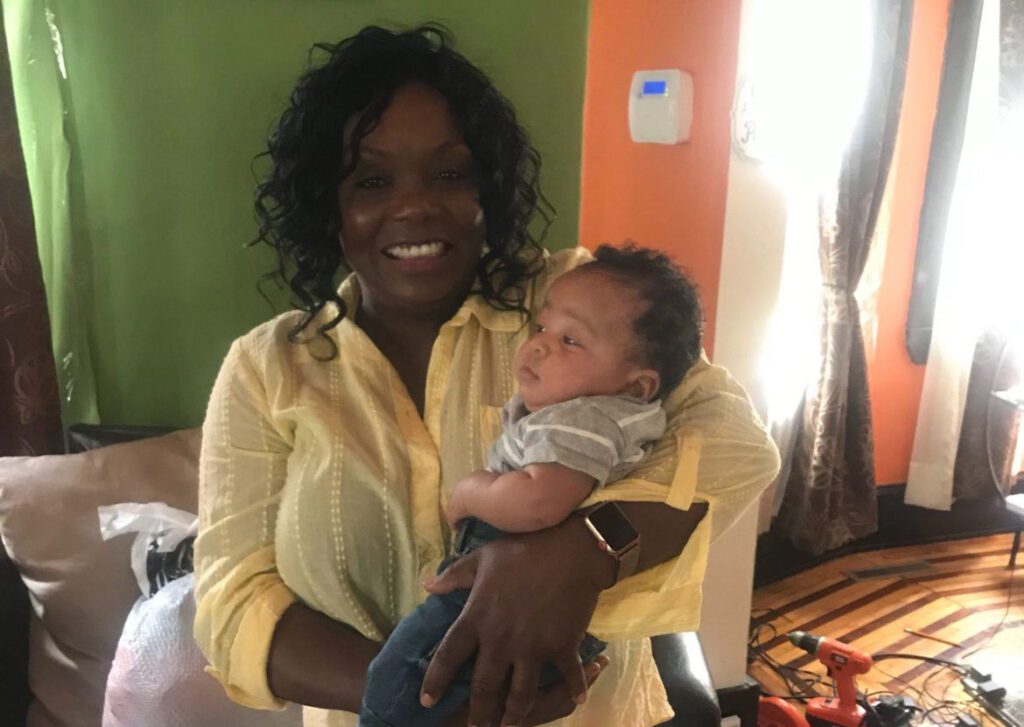When I testified on behalf of the renter’s rights ordinance in City Hall back in August, I wasn’t planning on mentioning my criminal record. I showed up because I just believed people deserve to have a place to stay. They deserve a place to call home.
But when one landlord mentioned that people with multiple felony convictions wouldn’t be good renters, I thought, “That’s not true.” And it just came out. I said—I’m one of those people.
The last place I rented, I paid $54,000 in rent. I was a tenant for 54 months. I never paid my rent late and I never had any problems. When I finally left that apartment, it was to buy my own home.
When I heard that the city had agreed to pass the renter’s rights ordinance, I thought, “Wow, this is awesome.” It’s a step. Hopefully one day it won’t be necessary to do a background check, period.
Housing has nothing in my mind to do with a person’s criminal background. Housing is a necessity that should be available to everyone.
Most people who are in prison will come back to our community. We have to ask ourselves: How do we want them to come home?
When I came back from prison, I had support in getting an apartment, a job, and a house. I’ve met a lot of women who were not as fortunate as me. My friends struggled in prison to make ends meet, making only 17 cents an hour.
That’s what so many people don’t realize. People right now are working jobs in prison. We are doing snow removal. Making clothes, mylar balloons, and license plates. How can you say it costs money to house people in prison? We are working for 17 cents an hour. That should be a crime.
And then people have to worry when they get out—where are they going to go? What are they going to do?
We’re tearing people down
systemically. Most people who are in prison will come back to our community. We
have to ask ourselves: How do we want them to come home? How do we want them to
feel?
I want them to feel accepted. I want them to feel like we’ve got housing for them.
We’ve got food for them. We’ve got jobs for them.
Like they can make it this time and be a part of our community.
That’s why I started a nonprofit, Start Anew—to reduce recidivism, reunite families, and teach young girls and women how to advocate for themselves. And it’s why I decided to get involved in renter’s rights advocacy and TakeAction Minnesota’s Justice 4 All program.
For many people, once they are released from prison, they are still in a box. Sure, we’re out. We’ve served our sentence. But we’re not welcome in the larger community or society.
I think of Maslow’s hierarchy of needs and what we need and deserve on a basic level.
I need a job.
I need housing.
I need shelter.
And I need some self-esteem to believe a different life is possible.
There are a lot of things that are broken because of our current system. People are trying to survive in prison just like they are trying to survive on the street. Our criminal justice system is separating and hurting families. It is keeping people in poverty.
It’s a cycle and we need to break it.
It’s up to me. It’s up to you. It’s up to us.
Cecelia is a member of TakeAction Minnesota’s Justice 4 All program. She testified on behalf of a Minneapolis city ordinance that puts limits on landlords discriminating against tenants due to their criminal history, past evictions, or credit scores. The ordinance passed in September. Cecelia also emceed at the recent Locked Up, Locked Out convening that gathered over 80 activists, organizers, and people with criminal records working to make systemic changes in our criminal justice system. Cecelia has a B.A. in Liberal Arts from Metro State University and is working on her Master’s in Divinity with a focus in leadership.
###
- Get more involved in our Justice 4 All program. Email Sabrina at sabrina@takeactionminnesota.org to learn more.
- Do you care about criminal justice reform? Help us elect candidates that are working towards mass liberation and justice. We’re knocking for local candidates that share our values. Sign up for a shift today.

